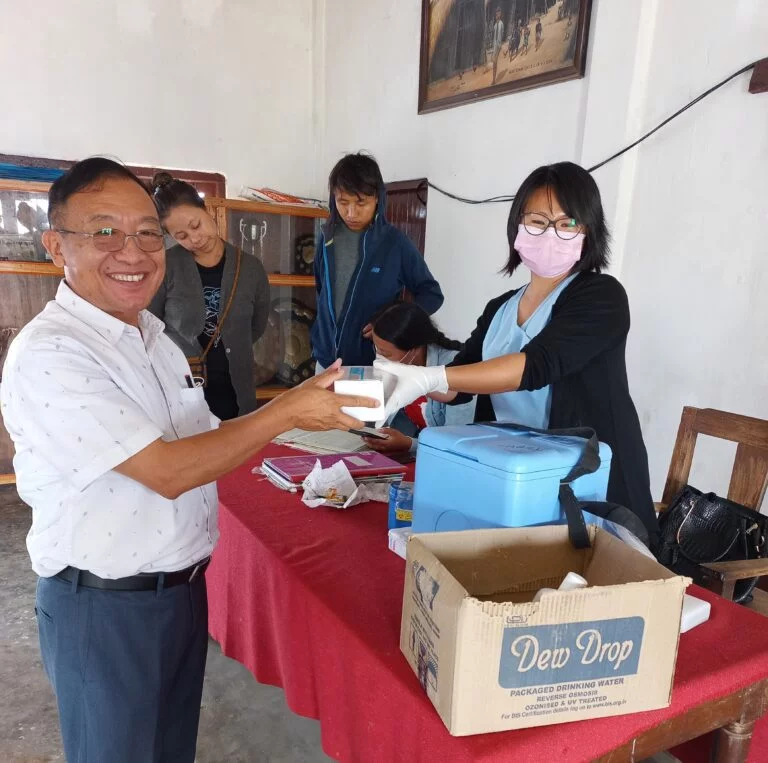One Day Workshop on Best Practices of Waste Management in Dimapur.
A one-day workshop on “Best Practices of Waste Management” was organised by PRO RURAL on 11th July 2025, at Don Bosco Institute for Development & Leadership, River Belt Colony, Dimapur. The program was attended by officials of the District Administration, Dimapur Municipal Council, Nagaland Pollution Control Board, and a host of concerned NGOs, Institutions, environmental activists and student representatives. The objective of the workshop was to deliberate and promote better waste management practices for Dimapur City, especially in the wake of the recent floods following torrential rains.
The facilitators of the workshop from Pro Rural, DMC, Nagaland Pollution Control Board, E-Circle, etc., all highlighted the urgency of bringing a transformation in the waste management system, involving every citizen of the city to go through a mind-set change and adopt better civic sense. This can be achieved only through Mass-sensitization programs.
Mr Paul Lokho, Director of Pro Rural, outlined three urgent steps to improve solid waste management. He said “No solid waste management program ever succeeded anywhere without the full Community Participation, and emphasised at least 80% of the city’s population attending awareness and sensitization program”. Secondly, he said in a city like Dimapur effective waste management can happen through a Public-Private-Partnership (PPP) model, where the DMC should involve active and capable NGOs, village Institutions and enterprising youth. Thirdly, he recommended participation of school students through a well-curated program design, that would be fun, rewarding and at the same time impactful. He gave an example of “Zero Litter Campaign” with a reward system for the school and college students.
Shri Bendang Longkumer, Revenue Officer, District Administration, Dimapur highlighted the current challenges facing Dimapur particularly in the wake of the emergencies caused by recent floods in the city, that revealed the imperatives of education in civic sense and better understanding and control on encroachment of natural drainages and water bodies. He recommended large scale community participation in sensitization programs.
Mr Adrian Mahung, DMC Consultant, presented the facts of waste generation and management realities. With a population of 1,72,000, Dimapur generates 74.6 MT of waste daily, amounting to 0.43kg per person- higher than the national average of 0.36 kg per capita. Current waste disposal data shows 86% of the waste is dumped at the DMC trenching ground, 9% goes to scrap dealers and 5% ends up in drains and streams, etc. Adrian pointed out the gaps in the system that persists due to weak public engagement, poor segregation practices and lack of inclusive planning. A particular area of concern was on the increasing volume of non-biodegradable waste like sanitary pads and diapers. He came up with a few key recommendations:
- Strengthening public participation through education and grassroots involvements.
- Implementing ward-wise segregation with a reward system for good performance.
- Creating ‘waste to wealth’ and involving waste workers in planning and decision-making processes.
Mr Yanthung, Scientist B from Nagaland Pollution Control Board (NPCB) provided some insightful evidences of the gaps in waste management in the Cities and Towns of Nagaland. He enumerated on the absence of basic infrastructure facilities, making the state as one of those that lacked any modern scientific handling of waste. This situation, he noted, has serious implications for both the environment and public health. The microplastic contamination in food and water is so high that an average person may be unknowingly ingesting the equivalent of one ATM card/credit card’s worth of micro-plastic each week. Furthermore, Mr. Yanthung drew attention to a disturbing reality of dogs, goats and other domestic animals feeding on toxic wastes at garbage piles that are later consumed by humans, making them indirectly part of a dangerous food chain. He also outlined some of the key steps and action plans already initiated by the NPCB to tackle these challenges, calling for coordinated efforts between local authorities, civic bodies, and the community to ensure safe waste disposal and sustainable waste management practices in the state.
The post lunch sessions saw many individual activists proposing plan of actions for youth, community and at institutional levels. Environmental champions like the E-Circle, Peace Channel, Bethesda and Prodigals’ Home etc. have advocated enlarging the conversation of better waste management at all levels. Recommendations for a massive revamping of the municipal councils, ULBs and forging alliances on a PPP model were recommended to be taken up seriously by the Government, Municipal Councils and the ULBs. It was also suggested that the power of the Pulpit should be utilized to drive home better civic sense and better practices of waste management. The Pastors fraternity should become important stakeholders in the campaign.
The Workshop reaffirmed the importance of a multi-stakeholder approach, where Urban local bodies, youth organisations, NGOs and institutions should work together to reshape the state’s waste narrative through a shared responsibility, so that the state may achieve a smart waste-wise performer within the coming decade.
Ms. Tolivi N Sumi
Project Coordinator, Environment & Waste Management
PRO RURAL









